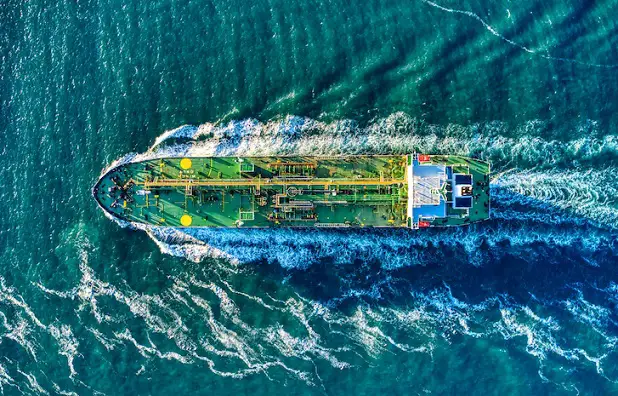On Sunday RWE, a German utility company, announced it has cemented a deal with Abu Dhabi National Oil Company (ADNOC) for the supply of Liquid Natural Gas (LNG). However, indicative of the tightness of the LNG market, the deal only includes a single tanker, amounting to 137,000 cubic meters of LNG, so far. to be delivered by late December of 2023.
In a separate deal, RWE announced it will be partnering with UAE-based company Masdar on exploration of offshore wind projects, as well as on the delivery of 250,000 tons of diesel per month to Wilhelm Hoyer, the German fuel distributor.
Reportedly the deal also includes a memorandum of understanding that there will also be additional LNG deliveries next year, however it was noted the memorandum is non-binding, and there is no specific guidance on how many additional shipments there might be.
The agreement was inked during German Chancellor Olaf Scholz’s trip to Abu Dhabi, during his recent tour of the gulf countries in search of energy deals to try and provision the nation ahead of the upcoming winter.
In a statement made before the deal’s announcement, Scholz said, “We need to make sure that the production of LNG in the world is advanced to the point where the high demand that exists can be met without having to resort to the production capacity that exists in Russia.”
Berlin has had difficulty finding deals to be made in the tight LNG market, amid Russia’s cut in supplies. Scholz visited Qatar after the UAE however he failed to secure any deal. Talks with both Qatar and the UAE have been progressing for several months, however Berlin has not wanted to enter into long term contracts with Doha so far.
Germany is growing desperate to secure enough gas supplies to take it through the winter, after Russia shut down deliveries through the Nord Stream 1 pipeline. On Sunday there had been mass protests in Germany against the higher energy costs, with many demanding the opening of the Nord Stream 2 pipeline, which had been ready to be activated with a flip of a switch. Russia had indicated it would be happy to sell Germany as much gas as it needed, but only through the Nord Stream 2 pipeline.
However on Monday morning pressures suddenly dropped in the Nord Stream 2 pipeline, and subsequent investigation revealed it had likely be sabotaged, with a rupture leaking gas in the Baltic sea. Then it was discovered the Nord Stream 1 pipeline had suffered a similar fate. The company has said repairs may take several years to return the pipelines to operability, due to the depth of the water in which the sabotage occurred.

